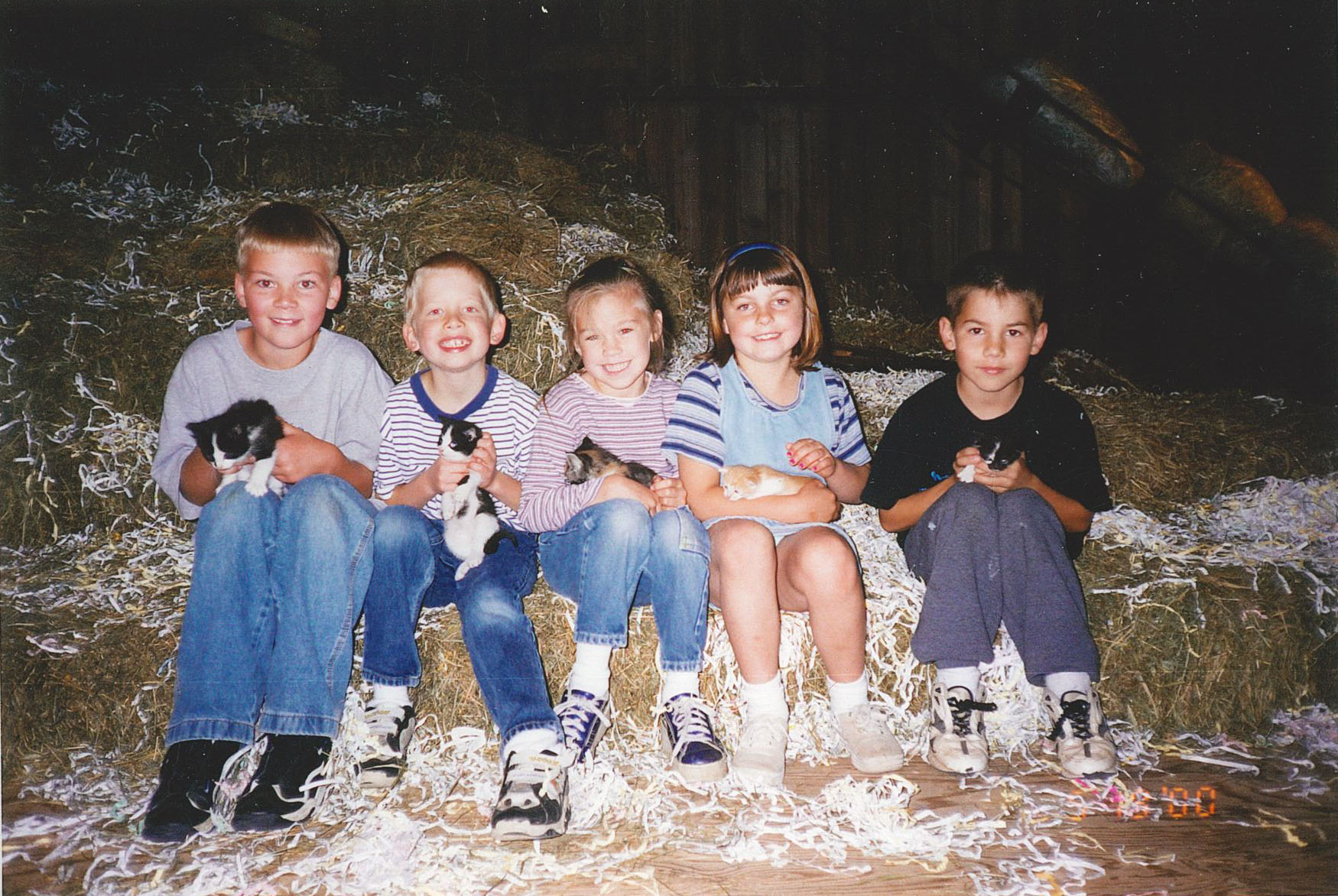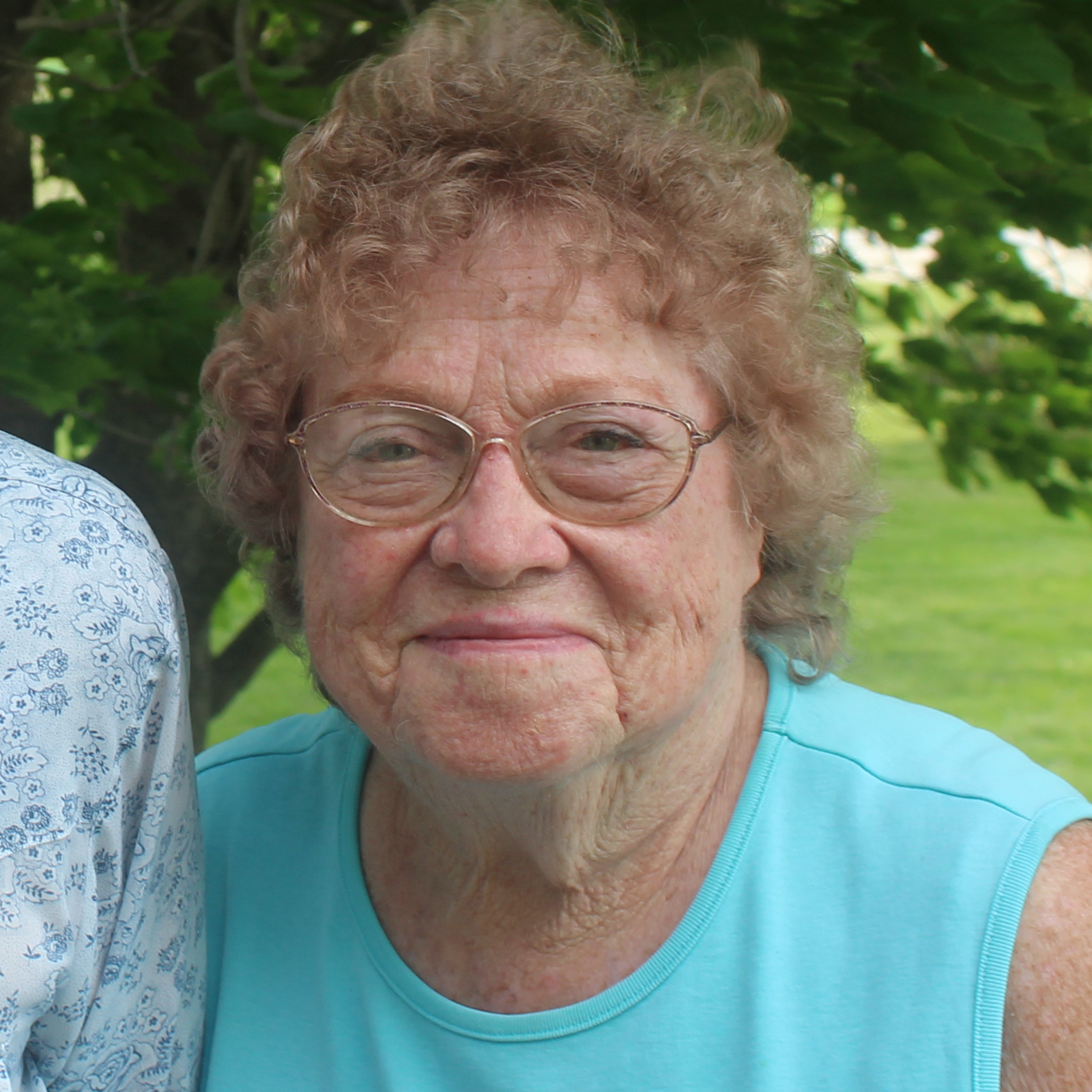I have been blessed to live in the country all my life. To see the sun set in a blaze of glory, orange, pink and red; to smell the new mown hay; to hear the first frogs croak in the spring…all are treasures.
The decision to share this wonder began when a preschool teacher in Newton was looking for a farm to bring their children to visit. It was the beginning of years of fun.
At our farm, we milked cows, raised feeder pigs, and had beef cattle. Before the present ideas of “safe” food, we served milk straight from the big stainless steel cooler and deviled eggs from our hens.
Gathering eggs was the kids’ favorite. We cautioned them not to reach under setting hens. One little boy stood too close to the nests and was pecked on his nose. He cried and cried, and he probably hates chickens now!
Bottle feeding baby calves, goats or lambs was also a fun challenge for teachers and children. There were baby animals of every kind to hold: chicks, ducks, kittens and rabbits. With chicks hatching, there was shredded paper to jump and play in.
Carrots or apples were offered as treats for the donkey, deer, and llama. We even had an unfriendly emu. Peacocks entertained with their large beautiful tails spread as they strutted about. There were quail too. Weiner roasts or snack lunches were enjoyed down in the timber, which was reached by hayride. The ride was pulled by tractor or a team of two big black Percheron horses.
A typical wooden outhouse was provided in the timber with mixed reactions. The girls were reluctant to venture in. Spiders you know! The boys on the other hand loved it and tried to peek through cracks when the girls went in.
Walks through the hickory and oak trees followed lunch, with flower picking among the birds, hawks soaring above, and chipmunks scurrying to hide. Exploring crawdad mud volcanoes by the stream was especially fun.
On one occasion in the timber, the neighbor’s bull had appeared on our side of the fence. The teacher and I were driving him back while a high school boy remained with us. He stayed behind us shouting, “I’m behind you, I’ve got your backs.”
“Yeah right,” we both thought, but the moral support was appreciated.
We typically divided the children into three groups: one rode ponies, one gathered eggs, and the other group fed animals and went to the hay mow in the barn. Pony rides were complete with cowboy music and no lines to wait in, except for the rides. Children would not go play on the big hay bales for fear of missing their ride.
Chick-hatching time at the Moyers’ farm always meant there was shredded paper for visiting kids to jump in
Two geese roamed the barnyard. Two grandmothers brought their very little granddaughters to see the animals. They had known my husband for a long time, and they visited as we toured. One of the geese grabbed the littlest girl by the seat of her pants and would not let go! I was frantically trying to reassure her, while the adults were laughing and taking pictures of her. When we see them now, they all still laugh about the goose story.
Handicapped adults and children were also visitors to the farm. After visiting with the animals the children would often smile and try to talk to the delight of their teachers. Animals were good therapy, especially the ponies.
There was also a wedding, a church service, a square dance Christmas in the barn, as well as performances by various music groups.
Before the holiday season, the Rev. David Brandt [see “A Place to Call Home,” by Bridget Brandt, also in this issue] approached us with the idea of a Christmas Service in the barn. We thought it was a great plan and moved forward removing all the kiddy things possible. We made a pen for lambs, a cage for a rooster and disguised a llama as a camel at the bottom of the ramp. Weather was good and a few heaters made it comfortable. The rooster crowed repeatedly through it all, and that was what people remembered. We enjoyed this for three years, I believe, but the last year it was very cold and that cold put an end to a nice part of our memories. The wedding came about from a request from our granddaughter, who wanted a Western wedding in the barn. Her fiancé had friends in Missouri who brought their horses and camped in the timber. Their job was to park cars.The rehearsal dinner was a fancy chuckwagon dinner in the timber where the cowboys were camping. Everything went well, and the service was very nice. The large crowd sat across the haymow and our friends sang all the wedding music accompanied by guitars.The weather was perfect, but when they walked down the ramp from the barn a large black cloud was in the west.The wedding party rode on our hayrack pulled by our black Percheron horses to the American Legion Post building across Highway 146 [in Grinnell].
The bride’s parents and the cowboys rode horses and accompanied them.The local police stopped traffic at the corner for them to cross.The wedding party had a large umbrella, which they ended up needing because it rained and poured all along the way.
Thankfully, they were dry, but Allan and I were soaked. When we arrived at the Legion, the electricity was off so we came home to get candles and leave the horses. A buffet meal was in full swing when we returned and eventually the electricity came back on. A memorable event to say the least! Finally, when Al Gore was a presidential hopeful, there was almost a visit to the farm. The whole family had background checks and the Secret Service arrived in black cars. We were all quite impressed. They checked everywhere for sniper hiding places, even the attic in the house. Unfortunately, the final decision arrived when not enough telephone access could be available to accommodate their needs. A big adventure, anyway.
Occasionally we hear from a mom or dad who visited our place as a kindergartner, and they tell us about how their kids also enjoyed a visit to the farm. Many friends, relatives, and neighbors made this all possible and are fondly remembered by all our family. We haven’t had school visits for many years now. Almost all the animals have been sold off, but there is still a donkey and a mule. They just seem a part of the place. And, of course there are always cats milling around and hens in the chicken coop out back.
So many memories return when writing this story….

Kittens in the Hay Mow


